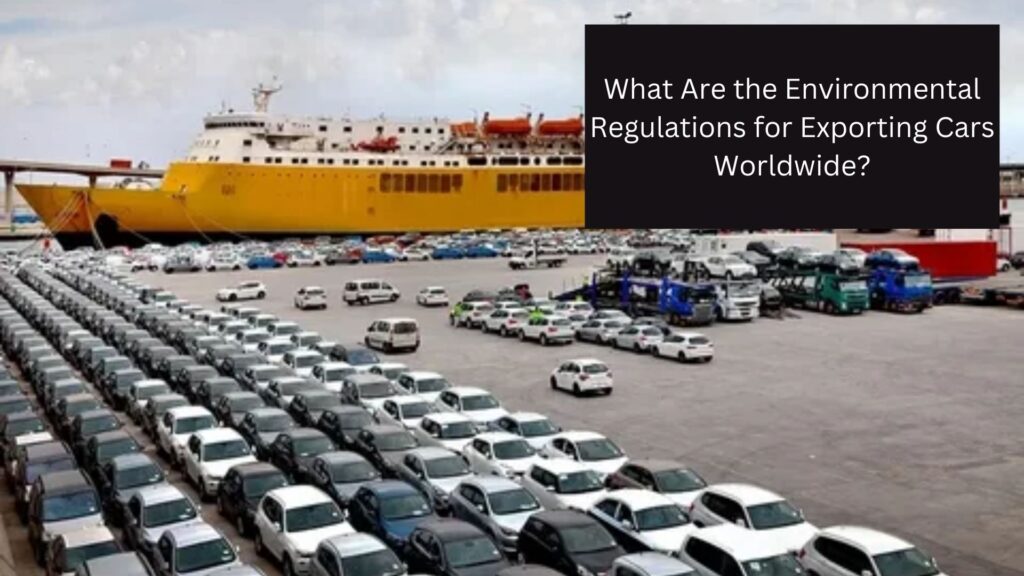The automotive industry has been a cornerstone of modern civilization, bringing convenience and mobility to billions of people worldwide. However, it has also contributed significantly to environmental degradation, including resource depletion and pollution. Car recycling has emerged as a sustainable solution to these challenges. By repurposing parts and materials, car recycling reduces the strain on natural resources, minimizes waste, and promotes environmental sustainability. In this article, we will explore how car recycling helps preserve natural resources and its broader benefits to the environment and economy.
Understanding the Process of Car Recycling
Car recycling involves dismantling and reprocessing old, damaged, or unused vehicles to recover usable parts and materials. This process typically includes:
Collection: Vehicles are collected from owners, often through services like cash for unwanted cars Gold Coast, where sellers can easily dispose of old vehicles for monetary value.
Dismantling: Recyclers strip the vehicle of reusable components like engines, batteries, and tires.
Shredding: The remaining vehicle body is shredded into smaller pieces.
Material Separation: Metals such as steel, aluminum, and copper are separated using advanced techniques like magnetic sorting.
Reuse and Recycling: Usable materials are sent to manufacturers for reuse, while waste is minimized through proper disposal practices.
This comprehensive approach ensures maximum recovery of resources while minimizing the environmental impact.
Reducing Dependence on Raw Materials
One of the most significant benefits of car recycling is the reduced need for raw material extraction. Manufacturing vehicles requires vast amounts of steel, aluminum, rubber, and plastics, all of which are derived from natural resources. Mining and processing these materials consume energy, disrupt ecosystems, and deplete finite reserves.
By recycling old cars, industries can reuse metals and other materials instead of relying on freshly extracted resources. For instance, steel recovered from recycled cars can be directly used in new manufacturing processes, saving energy and reducing mining activities. Companies offering cash for unwanted cars in Gold Coast actively contribute to this cycle by ensuring unused vehicles are processed sustainably.
Energy Conservation Through Recycling
The production of raw materials, especially metals, is energy-intensive. For example, producing aluminum from recycled materials requires 95% less energy than producing it from bauxite ore. Similarly, recycling steel saves approximately 60% of the energy compared to its production from iron ore.
Car recycling significantly reduces energy consumption across the manufacturing process. By using recycled metals, manufacturers lower their carbon footprint, contributing to global efforts to combat climate change. This energy conservation not only helps preserve natural resources but also ensures that less fossil fuel is burned during production.
In regions like Gold Coast, where environmental awareness is growing, services like cash for unwanted cars Gold Coast encourage residents to recycle their vehicles, directly supporting energy-efficient manufacturing practices.
Minimizing Landfill Waste
Old and abandoned vehicles, if left unattended, often end up in landfills, where they occupy valuable space and pose environmental hazards. Components such as tires, batteries, and plastics can take decades to decompose, releasing harmful chemicals into the soil and water during the process.
Car recycling prevents this by diverting vehicles away from landfills and ensuring their materials are reused or responsibly disposed of. Recyclers break down cars into components that can either be repurposed or safely eliminated. For instance, tires can be transformed into rubberized asphalt, while batteries can be recycled to recover lead and acid.
Companies offering cash for unwanted cars Gold Coast play a pivotal role in this effort by making car recycling accessible to the public. By incentivizing vehicle owners to recycle their cars, they contribute to reducing landfill waste and protecting natural habitats.
Preserving Water Resources
Car manufacturing and raw material extraction demand significant water usage, which strains global freshwater reserves. Mining metals like steel and aluminum, as well as processing rubber and plastics, consumes millions of gallons of water annually.
Recycling cars reduces this water demand by reusing existing materials instead of extracting and processing new ones. For example, recycling aluminum saves up to 97% of the water required for its primary production. This conservation effort is critical in areas facing water scarcity, ensuring that this vital resource is preserved for future generations.
Programs like cash for unwanted cars Gold Coast contribute to water conservation by promoting recycling, ultimately reducing the need for water-intensive industrial activities.
Reducing Greenhouse Gas Emissions
The extraction, transportation, and processing of raw materials release significant amounts of greenhouse gases (GHGs) into the atmosphere. For instance, mining iron ore and producing steel generate substantial CO2 emissions, contributing to global warming.
Car recycling mitigates this by reducing the need for new material production, which is one of the largest sources of industrial GHG emissions. Recycling metals like steel and aluminum significantly cuts CO2 emissions, aligning with international climate goals.
When individuals choose services like cash for unwanted cars Gold Coast, they indirectly contribute to lowering industrial emissions by enabling the recycling of their vehicles. This collective effort plays a crucial role in combating climate change and preserving natural ecosystems.
Economic Benefits of Car Recycling
In addition to its environmental impact, car recycling provides substantial economic benefits. The recycled materials industry generates jobs and reduces manufacturing costs by supplying cheaper, sustainable alternatives to raw materials.
For vehicle owners, programs like free accidental car removal offer a convenient way to earn money while disposing of old vehicles responsibly. These initiatives create a circular economy, where waste becomes a valuable resource, driving sustainability across industries.
Governments also benefit from reduced landfill management costs and lower environmental cleanup expenses. By investing in car recycling infrastructure and promoting awareness, they can further enhance the economic and environmental advantages of recycling.
Protecting Biodiversity
Raw material extraction, particularly mining, often disrupts ecosystems and threatens biodiversity. Forests are cleared, habitats are destroyed, and wildlife is displaced to access resources needed for manufacturing.
Car recycling minimizes these impacts by reducing the demand for new materials. Recycled steel, aluminum, and rubber eliminate the need for additional mining, helping protect natural habitats and preserving biodiversity.
In regions like Gold Coast, where natural beauty and wildlife are integral to the community, services like cash for unwanted cars Gold Coast ensure that recycling practices align with environmental preservation goals.
Promoting a Sustainable Future
As the global population grows, so does the demand for vehicles. Without effective recycling practices, the environmental impact of car manufacturing could become unsustainable. Car recycling provides a solution by enabling a circular economy where resources are continually reused rather than discarded.
By choosing to recycle their vehicles through programs like cash for unwanted cars Gold Coast, individuals contribute to a more sustainable future. This collective effort reduces resource depletion, lowers emissions, and ensures that future generations can enjoy the benefits of a healthy planet.
Conclusion
Car recycling is more than just a practical solution for managing old or damaged vehicles—it is a vital strategy for preserving natural resources and protecting the environment. By reducing the need for raw material extraction, conserving energy and water, minimizing waste, and lowering greenhouse gas emissions, car recycling plays a crucial role in promoting sustainability.
Programs like cash for unwanted cars Gold Coast make it easier for individuals to participate in this eco-friendly practice, offering financial incentives while ensuring responsible vehicle disposal. By embracing car recycling, we can collectively contribute to a greener, more sustainable future, safeguarding our planet for generations to come.




